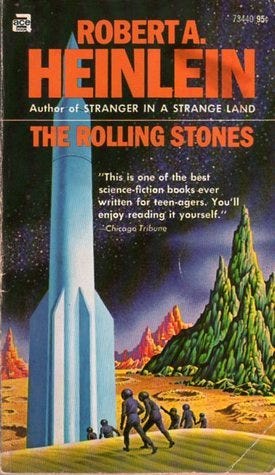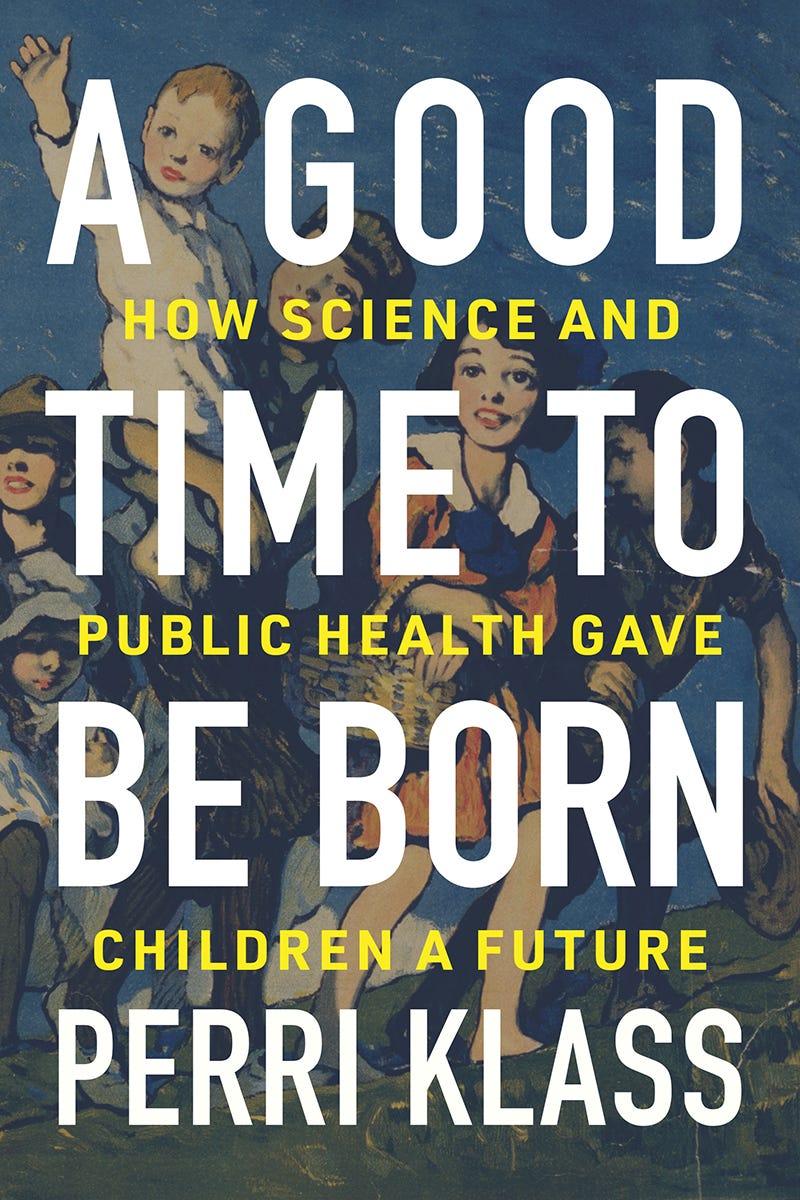Short Reviews for October 2024
Mindtouch; Rolling Stones; A Good Time To Be Born; Great Britain, the Soviet Union, and the Polish Government-in-Exile
Mindtouch, by M. C. A. Hogarth (426 pp; 2013)
Who should read this? Fans of cozy stories about character growth and friendship, who don't mind very little and slow plot.
This book is a cozy story of a growing friendship between two university dormmates in a science-fiction galaxy. They're aliens from extremely different backgrounds, with different telepathic powers. Over the course of the book, they learn to respect and trust each other, stop dancing around each other's reserve so much, recognize their friendship is worth preserving, and learn to help each other figure out where to go in life.
It's a very slow burn, with hardly any actual action. There's clearly a lot of background to the universe here, much of which gets gradually revealed. But neither of those is the point; the focus is the characters and their friendship. The climax rightly focuses on that. In an era with too few friendships in stories, I'm glad to have one story that shows a good, strong friendship even if it falls short elsewhere.
If you're in the mood for that, it might be worth reading. I'm happy to have read this, but I'm not planning to continue the series.
The Rolling Stones, by Robert Heinlein (253 pp; 1952)
Who should read this? Science fiction fans who would like a story with less technology and more family banter.
I enjoyed this as a kid; I enjoyed it again now. A family on the Moon buys their own rocket ship and travels the Solar System - for fun, say the adults, but our protagonists the resourceful twins insist on bringing trade goods and turning it into a business venture. Yet, Heinlein throws twists and challenges at all of them: twists of unexpected markets, of taxes, of unexpectedly multiplying animals... all of which our protagonists surmount through their resourcefulness, making a very fun story.
This is a firmly Golden Age sci-fi story - but one where most of the problems aren't solved through technical skill, but through resourcefulness in general.
Around the margins, we get tastes of Heinlein's classic banter - but this's Early Heinlein; the banter and ideology is strictly in service to the characters and plot. We don't even get a single lecture of the sort we see in his later works.
I'm left enjoying the characters and setting both, and wishing Heinlein had written more of this.
A Good Time to Be Born: How Science and Public Health Gave Children A Future, by Perri Klass (384 pp; 2020)
Who should read this? People interested in childhood in history, or in public health.
Only a hundred years ago, many children did not reach their first birthday - let alone adulthood. And that was still an improvement over two hundred years ago, when it would have been "most."
It wasn't just a lack of individual effort, either - as late as 1924, when President Calvin Coolidge's son got a blister which turned into blood poisoning, there was hardly anything the doctors could do. He was dead within a week.
This book tells the story of the public health doctors and interventions that, point by point, fought away each avenue of death. But before then, it opens our eyes to what it was like living in a world with death stalking children. Klass gives us excerpts from people's letters and diaries, and shows us graveyards - but also, artfully, recounts famous fictional stories written in that era like Little Women or The Velveteen Rabbit to point to the threat of death which we modern readers often minimize.
What pushed away that threat was many coordinated efforts, avenue by avenue and disease by disease: from keeping the food supply chain safe, to sanitation, to general nutrition, to antibiotics and vaccines. Every one of these was a huge effort in itself, recounted here.
I'd heard of a lot of these diseases and triumphs of public health before, but it was great seeing them all put together and spelled out on the page. Klass's writing isn't the most organized or engaging, but the story gives greatness to the telling.
Great Britain, the Soviet Union, and the Polish Government-in-Exile, by G. Kacewicz (280 pp; 1979)
Who should read this? People who want a diplomatic history of Poland in World War II, or a history of tension in the Western-Soviet relationship in World War II.
This is a sad story. I knew that going in, but I didn't anticipate all the ways in which it would be sad.
While I knew how the Polish government-in-exile (first in France, then London) was betrayed by the Western powers who courted the Soviet alliance, and I knew the political pressures behind this betrayal - I didn't know how naive the Poles were. Until the start of 1945, they continued to naively believe that Churchill and Roosevelt would defend their rights. They had little more than vague political statements to go on, but they refused to see the betrayal that was already happening as Britain and America kept brushing them aside from their Soviet relationship.
What could have been different? Perhaps little; trying to make deals with Stalin was always a fool's errand. But if the Polish government had tried to accomodate themselves in hopes of getting something... perhaps they could have gotten something? But then the nobility of their lonely flying of the flag in London through 1990 would have been lost. Or, more hopefully, if Roosevelt had pressed in 1941 for Stalin to at least pretend to honor Polish rights... maybe he would have only gotten empty words, but perhaps it would have been something?
Reality, as it was, was a sad story. It seemed even more sad in this 1979 book, published during the Communist rule. At least now we know the government-in-exile triumphantly handed over authority to their freely-elected successors.








It's hard to beat Heinlein's YA novels!*
*I know they're not technically YA in the current sense, but you know what I mean.
I have long thought that Heinlein's juveniles, from Rocket Ship Galileo to Have Space Suit—Will Travel were the height of his literary achievement. I don't include Starship Troopers, which was submitted to be his thirteenth juvenile and bounced; I'm afraid I think his publisher was justified in having problems with it, though perhaps not in the lack of courtesy of the rejection. It just didn't seem as if Juan Rico had enough agency to make him capable of getting into interesting conflicts. Now The Rolling Stones is just crammed with characters who have agency (though, sad to sad, that doesn't seem to include Meade).